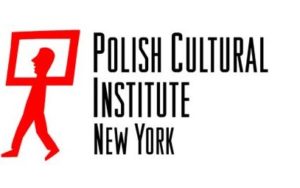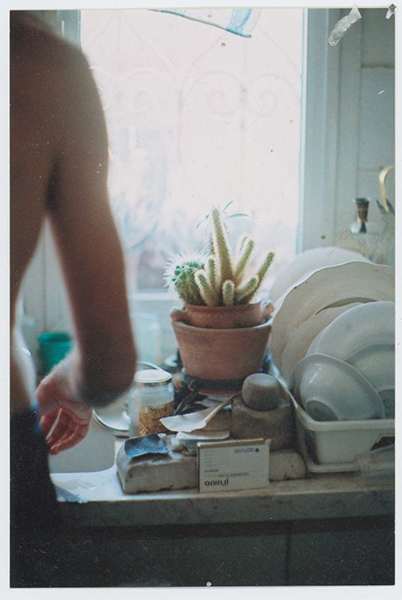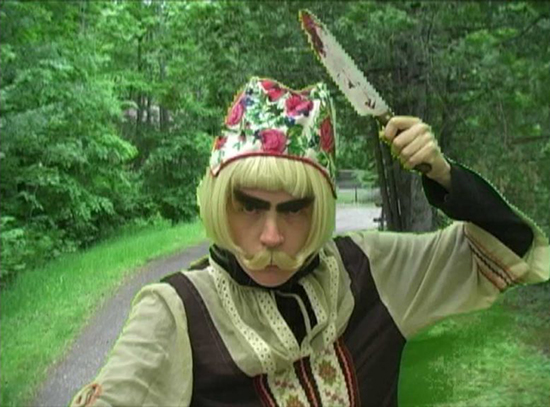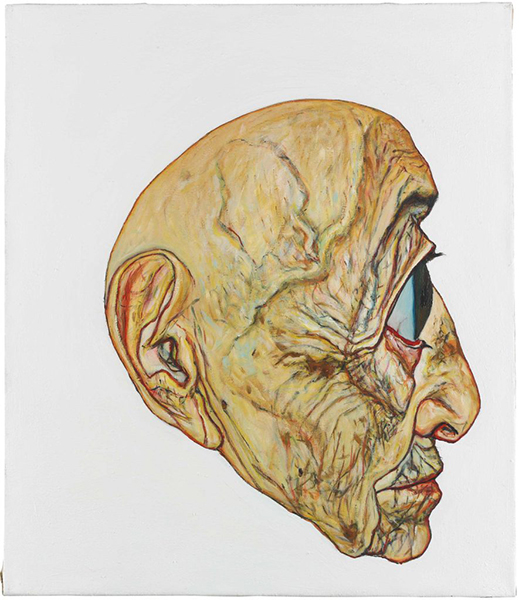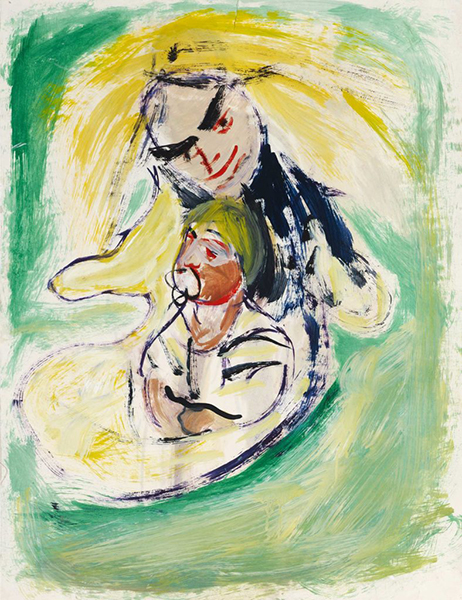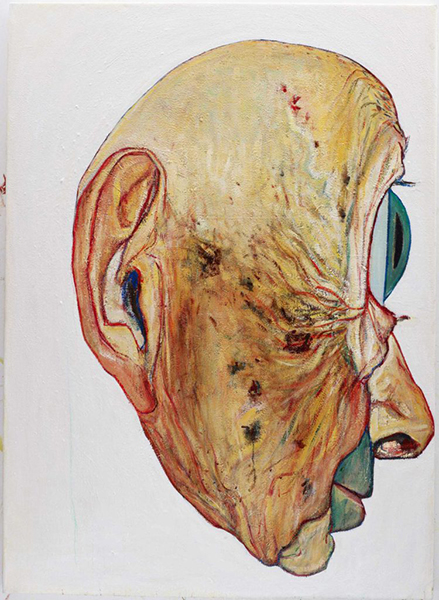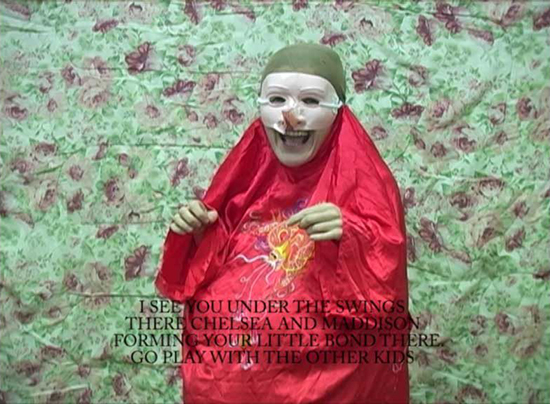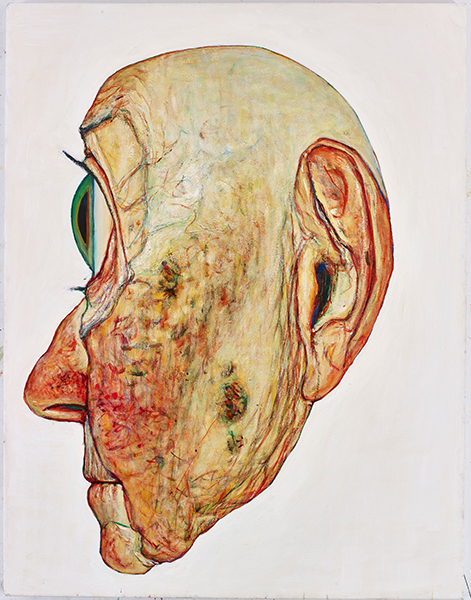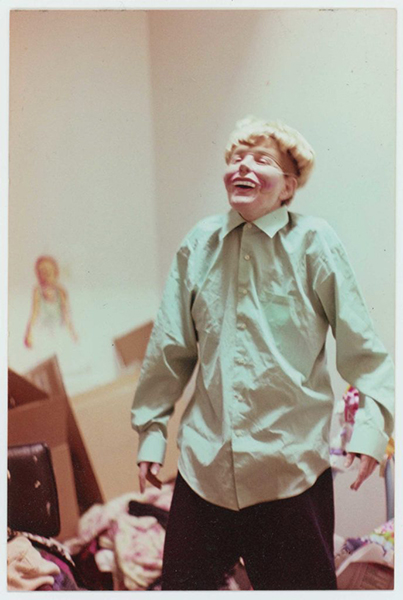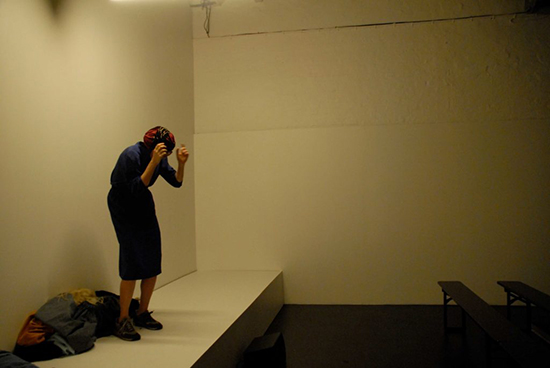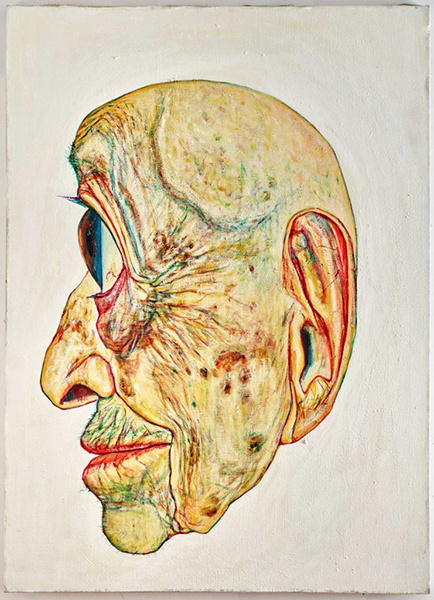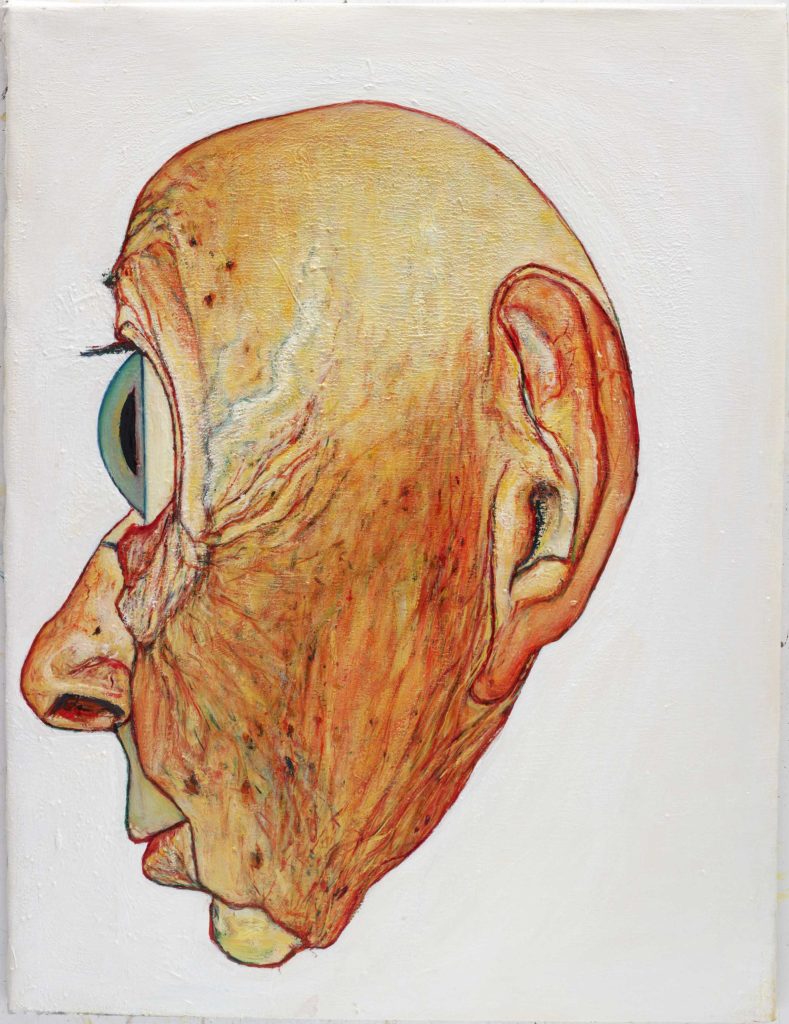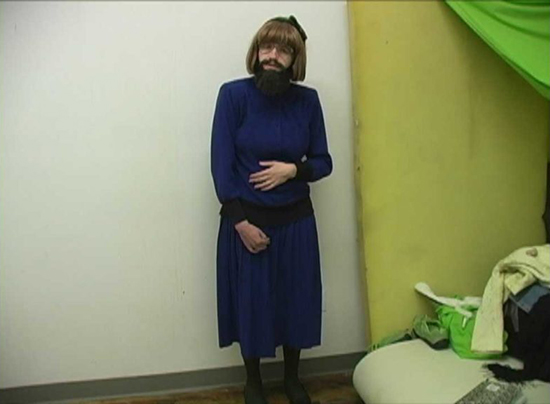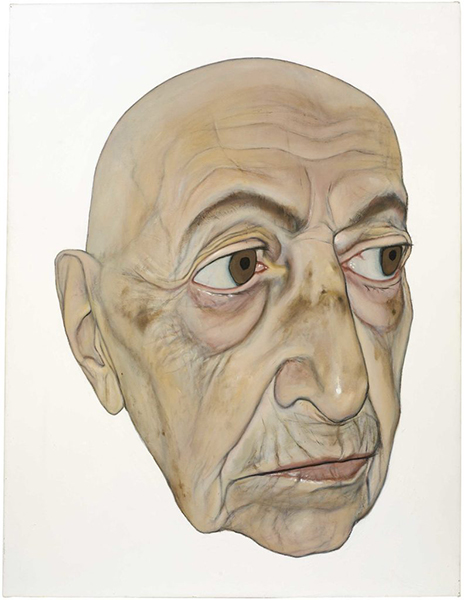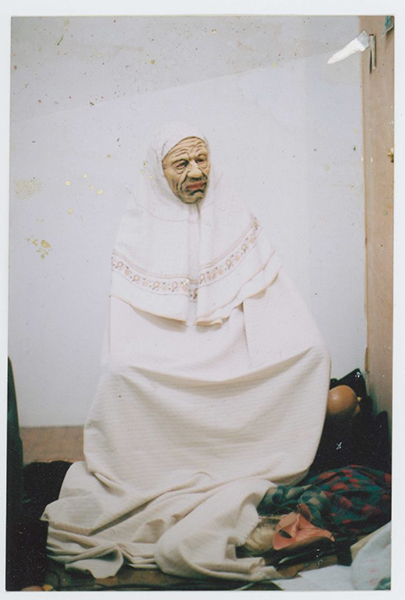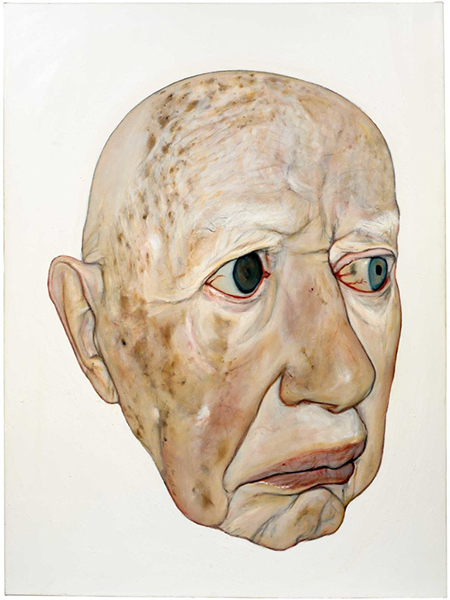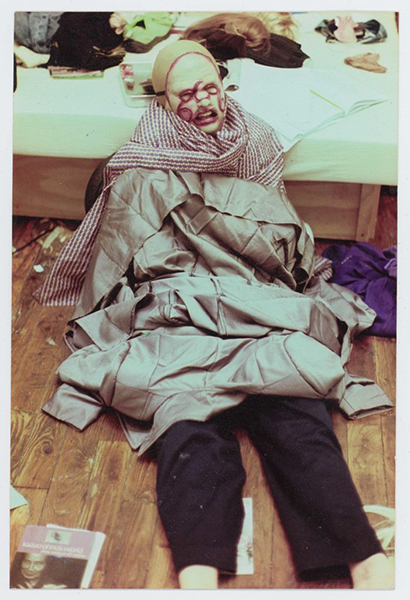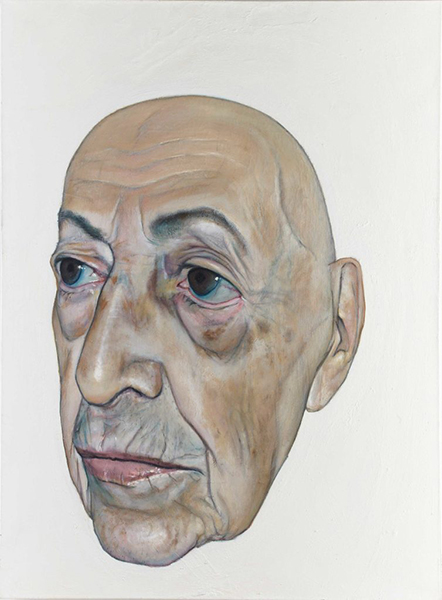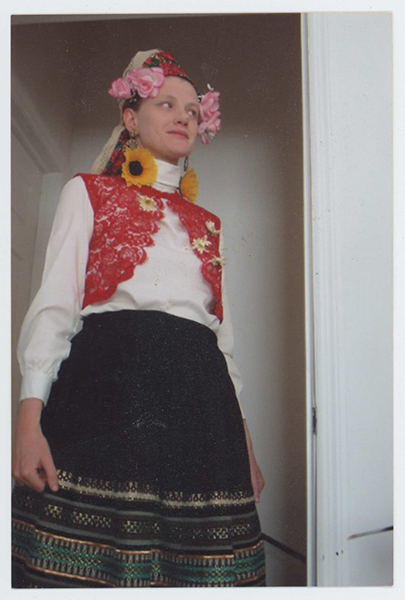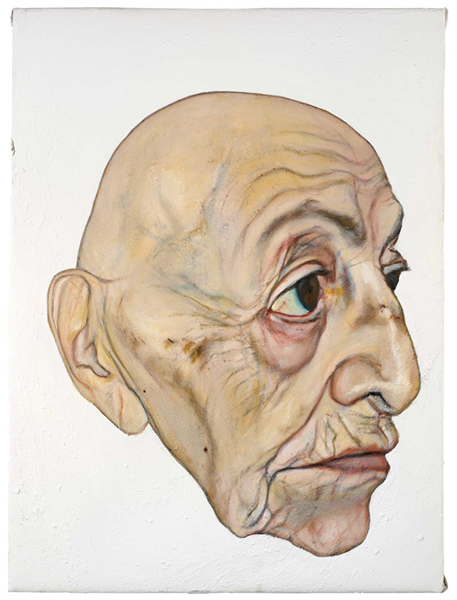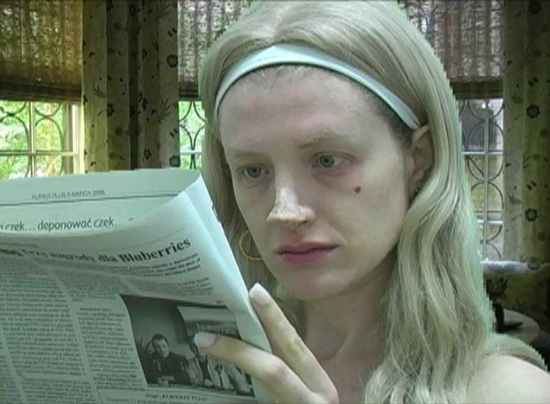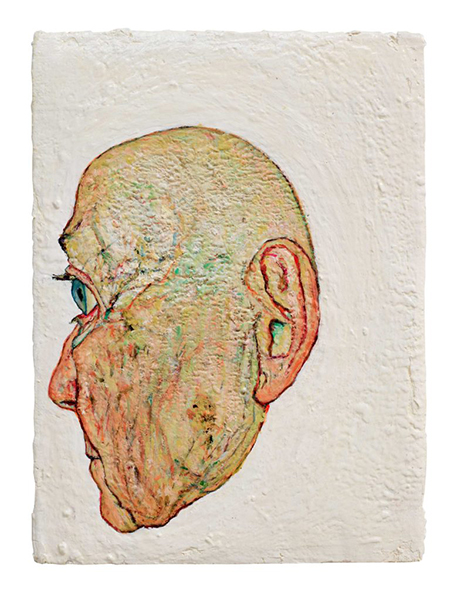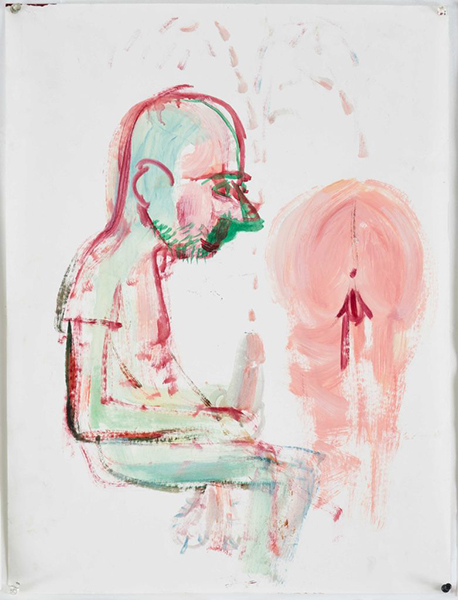Longstanding collaborators in life and art, performance artist Tamy Ben-Tor and painter Miki Carmi excavate and analyze human archetypes through their philosophically oriented practice. Using different approaches, both artists strip their subjects bare, revealing the marks that define each subject’s neurotic psychological state. The result is a close look at the undeniable tension between material life and the desires of the soul. Ben-Tor’s performances and Carmi’s painting are made in a shared space through constant dialogue, and fuse into singular projects through video works.
Carmi’s primary subjects are his grandparents and parents, who he photographs and paints, removing hair and identifying clothing. This is set in stark contrast to Ben-Tor’s similarly probing human studies, which are based on close observation and extrapolation of behaviors through her expansive fluency with language, accent, gesture, costuming and aural effect. Archival photography, specifically ethnography as connected to the eugenics projects of the nineteenth and twentieth century, orients their understanding of the face. There is a modified nostalgia that points out the impact of fracturing the whole self (mind, body, soul) through the western intellectual tradition. The results are a large body of work that presents an utterly particular logic and visual quality. The surfaces appear filtered through a lens that compresses time. Sepia tones, browns, deep greens, a yellow hue: this tonal register Ben-Tor and Carmi have formulated infers the past, but a past that has never existed. It is a hue of now that incorporates and acknowledges its progenitors.
Between Ben-Tor’s absurdist performances that conflate subjects to unravel core emotional, social and hierarchical formulations that poison contemporary culture and Carmi’s intimate, probing paintings that construe the specificity of humanity and memory, these artists have developed a visual language oriented by the grotesque. They offer an insightful and stirring reflection on the process of disembodiment in our time.
The designers of this two-volume book project are Joshua Gamma and Joel Brendan.
Joel Brenden is a photographer, installation- and book-artist. His projects and research investigate natural and built ecologies, memory, environmental inscription, and identity. His work has been exhibited at Hallwalls Contemporary, Western New York Book Arts Center, The Burchfield-Penney, and at Tri-Mania 2018. As a designer he has created books for CEPA Gallery, University at Buffalo Department of Art, and Actar. He holds an MFA in Visual Studies from the University at Buffalo, and a BFA in Drawing at Central Washington University. Brenden is a professor of photography and design, and a frequent teaching artist at Just Buffalo Literary Center, conducting workshops on bookmaking and the intersection of poetry, poetics, and photography. In 2013, Brenden founded LINOLEUM, a small press periodically publishing artist books, zines, editions, and other printed matter.
Josh Gamma is a curator and designer based in Baltimore, Maryland. He has lived a nomadic life, first due to his father’s service in the U.S. Coast Guard—growing up primarily in Louisiana and Texas—and later, due to his own service in the U.S. Army. Gamma’s work lives at the crossroads of art, design, music, activism, history, and folklore. He sees his role as that of an ally, an amplifier, and a co-laborer with the artists and activists he works with. Joshua Gamma received his MFA in Curatorial Practice from Maryland Institute College of Art (MICA) in the spring of 2019.
TextBook: Tamy Ben-Tor & Miki Carmi is made possible in part by the Polish Cultural Institute in New York. This title will be published in September 2021.
